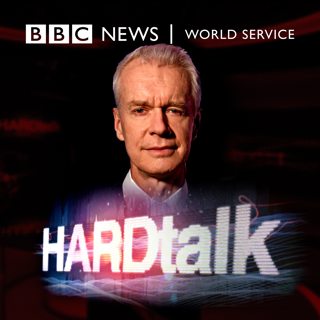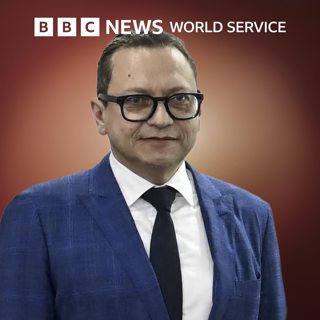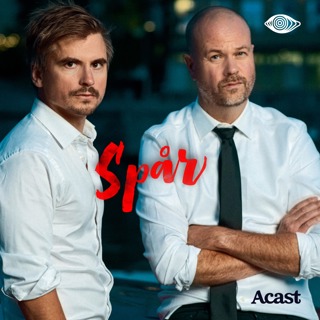
Hilde Johnson - UN Special Rep in South Sudan
South Sudan became independent in July 2011 after waging a five-decade war against the north in what was Africa's longest running civil war. But secession has brought neither peace, stability nor prosperity, despite the country's vast oil wealth. Hostilities with its northern neighbour leave the two countries teetering on the brink of war, and ethnic clashes and rivalries between southern tribes have left many thousands dead.Zeinab Badawi speaks to the UN head of mission for South Sudan, Hilde Johnson. Is the country effectively already a failed state?(Image: Victims of ethnic violence in Jonglei, South Sudan. Credit: Associated Press)
8 Feb 201223min

05/02/2012 GMT
In-depth, hard-hitting interviews with newsworthy personalities.
6 Feb 201223min

Mary King - British Olympic Equestrian
Mary King is a sportswoman like few others. She's 50-years-old and still at the pinnacle of her sport. That sport is three-day eventing. Next year, she's hoping to collect her first Olympic gold medal - at what will be her sixth games. But is equestrianism - as its enthusiasts insist - the toughest sport in the world?Or is it less a test of the person - more of the horse - and a preserve of the rich?(Image: Mary King. Credit: Press Association)
3 Feb 201223min

Dr Gene Sharp - Political Theorist
Gene Sharp is a political thinker whose influence is now spoken of in same breath as Mahatma Gandhi and Martin Luther King. But he is no platform speaker or figurehead at a demonstration. Rather, a quietly spoken political philosopher who's been writing about non-violent struggle for 50 years. What's changed is that his most celebrated pamphlet - From Dictatorship to Democracy - is now grabbing attention around the world. He's been hailed as having helped mould protest movements from Burma to Serbia to Egypt. What is it that Gene Sharp has been able to unlock?(Image: People flash the V (peace) sign during a demonstration. Credit: AFP/Getty Images)
1 Feb 201223min

Edwin Cameron - South African Constitutional Court Judge
Living as an openly gay man in socially conservative Africa is hard enough, but Edwin Cameron went even further.He was the first public official in South Africa to reveal his HIV positive status. Nelson Mandela appointed him a judge and he now serves on South Africa's Constitutional Court. There remains high levels of homophobia on the continent - why are gay activists like Cameron losing the argument?
30 Jan 201223min

Gus O'Donnell - Former Head of UK Civil Service
Gus O'Donnell has been at the heart of government in Britain for 30 years, working closely with the last four British prime ministers. He was John Major's press secretary; under Tony Blair he took on the top job in the civil service, a position he held when Gordon Brown took over. And that meant that at the last election he was the one overseeing the negotiations for Britain's first full coalition government since the Second World War. After nearly two years with David Cameron as prime minister he has now retired. And with his former role being split into three jobs - does even the man who signed his letters by his initials G.O.D - recognise he was just too powerful?
27 Jan 201223min

Sir Patrick Stewart
Sir Patrick Stewart has an acting career spanning more than 50 years. He was an accomplished Shakepearean actor when he took on the role of Captain Jean-Luc Picard in Star Trek: The Next Generation which brought him international acclaim.He talks to Sarah Montague about his decision to join the Star Trek cast and why it wasn't supposed to be successful. He also recalls his childhood where family rows often resulted in his mother becoming a victim of domestic violence.Sir Patrick is now a patron of the charity Refuge which helps victims of domestic violence.(Picture: Sir Patrick Stewart. Credit: AFP)
25 Jan 201223min

Wadah Khanfar - Former Director General, Al Jazeera
The satellite TV station Al Jazeera, is credited with giving ordinary Arabs a platform from which to challenge their governments. And day by day it's been covering the dramatic events of the Arab Spring using the latest slick technology on both its Arabic and English channels.But is it selective in who it criticises?Zeinab Badawi speaks to Wadah Khanfar. He was the boss of Al Jazeera for nearly ten years. Was the station's coverage biased on his watch? And why did he leave Al Jazeera in the midst of the biggest news events in the Arab World for decades?(Image: Wadah Khanfar. Credit: Getty Images)
23 Jan 201223min






















